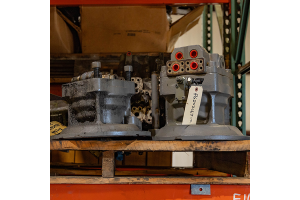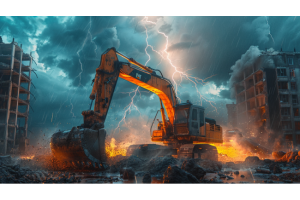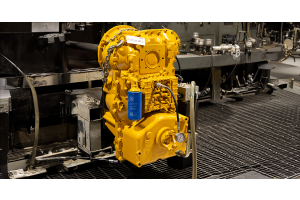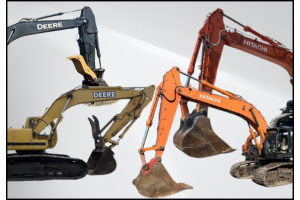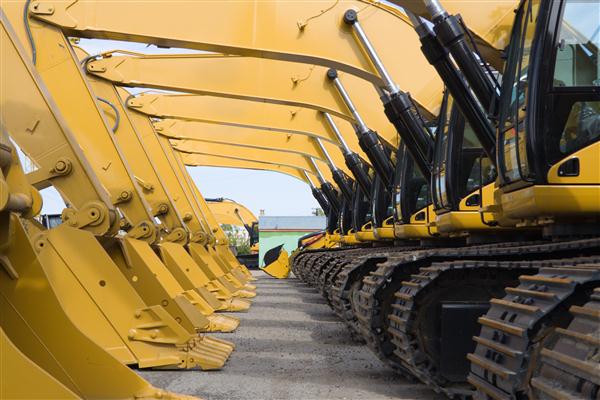
Every day accidents happen on job sites. While some only result in bumps and bruises, others can cause serious injury and death. The more serious accidents often involve the operation of heavy machinery. In most cases these incidents can be avoided by using some simple safety tips.
You have to have trained, certified operators in control of these machines. Proper training cannot be overstated. Not only should operators be trained and certified to operate heavy equipment like excavators, wheel loaders, backhoes etc., but they should receive continued training to keep them sharp. Never, ever allow an uncertified person in the cab of a machine.
Beside the operation of the machine, proper training includes what to do in the case of an emergency, state laws, and preventative maintenance.
Having a safety meeting at least once a month is a great way to keep safety on the minds of all operators.
Before running any machine, the equipment should be inspected. Thousands of pounds will be in motion. If a part breaks, it can seriously injure anyone near the machine. If a boom is cracked, it could snap during a heavy lift. If brakes fail, a machine could crush workers standing nearby. Operators need to inspect basics like breaks, fluid levels, tires and other components for integrity before starting the machine.
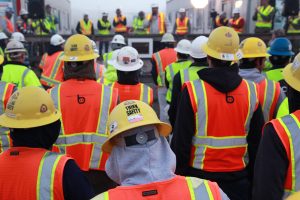
Also inspect the job site for potential hazards including power lines, poles, and any other obstacles. Clearly mark areas to be aware of, and post signs if pedestrians or traffic will be near the machines in operation.
Always have your machines serviced by certified techs. Don't skip scheduled inspections and document all work done on the machine.
After moving heavy equipment to a location, be sure to inspect it again as parts can be damaged during transport.
Speed definitely kills so slow down. If you're behind on a job, it's better to miss the deadline than to have someone on the line end up dead. Ultimately, mistakes happen when rushing so, though you may get the job done in time, it may not be done right.
Communication is very important. Everyone needs to know what everyone else is doing. Workers need to know when certain machines will be in operation, where they will be going, and what they will be doing.
Use spotters when necessary to keep an eye on potential hazards. Also make sure everyone knows the safety guidelines, procedures, policies and expectations. If someone fails to comply, there needs to be a penalty to help prevent a repeat. Communication is the key to minimizing risk and being efficient.
Distractions are probably the number one cause of accidents. Just like when driving a car, anything that pulls your attention away from what you need to be focused on can often lead to a mistake. Probably the number one distraction today is a cell phone. A good policy to adopt is to prohibit phones in the cab.
To drive this point home, OSHA fines companies thousands of dollars, over $100,000 in many cases, for not having distraction policies. OSHA already forbids the use of phones on cranes.




